Text
Financial Services Expert Witnesses: Their Contribution to Fraud Investigations
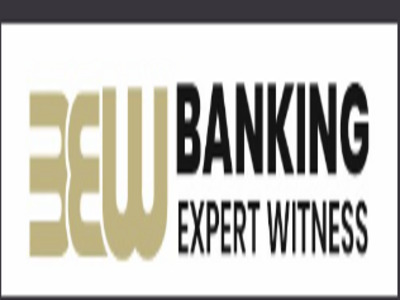
Financial fraud is a pervasive threat in today's complex financial landscape, affecting businesses, investors, and consumers alike. To combat this menace and seek justice, legal proceedings often require the expertise of expert witness financial services. These professionals play a crucial role in fraud investigations, offering specialized knowledge and insights that are instrumental in uncovering fraudulent activities, analyzing financial data, and presenting evidence in legal proceedings.
Expert witness financial services are individuals with extensive experience and expertise in various aspects of the financial industry, including banking, investment, accounting, and regulatory compliance. They possess a deep understanding of financial regulations, industry standards, and best practices, making them invaluable assets in fraud investigations. Let's explore the significant contributions of financial services expert witnesses in fraud investigations.
Specialized Knowledge and Expertise: Financial services expert witnesses bring a wealth of specialized knowledge and expertise to fraud investigations. Their deep understanding of financial products, transactions, and regulations allows them to identify red flags, anomalies, and potential areas of fraud within complex financial schemes.
Data Analysis and Forensic Examination: One of the key roles of financial expert witnesses is to conduct thorough data analysis and forensic examination of financial records. They utilize advanced analytical tools and techniques to scrutinize financial transactions, detect irregularities, and trace the flow of funds, providing crucial evidence in fraud investigations.
Risk Assessment and Compliance Review: Expert witness financial services also assist in risk assessment and compliance review processes. They evaluate financial institutions' risk management practices, internal controls, and adherence to regulatory requirements, identifying areas of non-compliance or vulnerability to fraudulent activities.
Expert Testimony and Report Presentation: During legal proceedings, financial expert witness provide expert testimony and present detailed reports that outline their findings, analysis, and conclusions. Their testimony is essential in explaining complex financial concepts to judges, juries, and legal teams, helping to build a compelling case against alleged fraudsters.
Due Diligence and Background Checks: Financial expert witnesses perform due diligence and background checks on individuals, businesses, and financial transactions involved in fraud investigations. They verify the authenticity of documents, assess the credibility of parties, and uncover hidden connections or conflicts of interest that may indicate fraudulent behavior.
Collaboration with Legal Teams: Expert witness financial services collaborate closely with legal teams, including attorneys, investigators, and law enforcement agencies, to gather evidence, develop case strategies, and support litigation efforts. Their insights and expertise strengthen the legal team's ability to pursue justice and hold perpetrators of financial fraud accountable.
Educational and Preventive Measures: Apart from their contributions to ongoing fraud investigations, Bridging loan problems expert also play a role in educating businesses, institutions, and the public about financial fraud risks and preventive measures. They offer training, seminars, and advisory services to enhance fraud awareness and promote fraud prevention strategies.
In conclusion,
financial services expert witnesses are indispensable assets in fraud investigations, offering a comprehensive range of services that include data analysis, risk assessment, expert testimony, and collaboration with legal teams. Their contributions significantly enhance the effectiveness and integrity of fraud investigations, ultimately leading to justice, accountability, and the protection of financial interests.
0 notes
Text
Expert Witness Testimony in Bridging Loan Defaults: Legal Ramifications
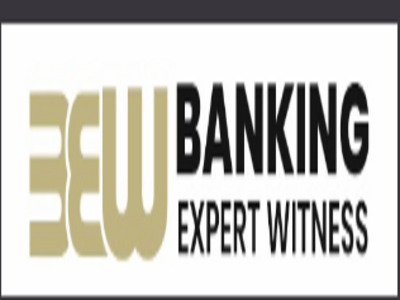
Bridging loans serve as a crucial financial tool in various industries, facilitating temporary financing solutions for individuals and businesses. However, when borrowers default on bridging loans, it can lead to legal disputes and complexities. In such cases, expert witnesses specializing in financial services, commonly known as Banking Expert Witness or Financial Services Expert Witnesses, play a critical role in providing testimony and insights regarding bridging loan defaults and their legal ramifications.
Understanding Bridging Loan Defaults:
Before delving into the legal implications, it's essential to comprehend the nature of bridging loan defaults. Bridging loans are short-term loans typically used to bridge the gap between the purchase of a new property and the sale of an existing property. These loans often have higher interest rates and are secured against the property or other assets of the borrower. In the event of a default, where the borrower fails to meet repayment obligations, legal proceedings may ensue.
The Role of Expert Witnesses:
Expert witnesses specializing in financial services bring a wealth of knowledge and expertise to legal proceedings involving bridging loan defaults. Their role encompasses various aspects, including:
Financial Analysis: Expert witnesses conduct thorough financial analysis to assess the circumstances leading to the bridging loan default. They examine financial statements, transaction records, loan agreements, and other relevant documents to provide a comprehensive overview of the financial situation.
Evaluation of Default Causes: Expert witnesses delve into the root causes of the loan default, identifying factors such as financial mismanagement, market fluctuations, economic downturns, or unforeseen circumstances that contributed to the borrower's inability to meet repayment obligations.
Assessment of Loan Terms: Banking Expert Witnesses scrutinize the terms and conditions of the bridging loan agreement to determine if any clauses, covenants, or obligations were breached by either party. They evaluate the fairness and enforceability of the loan terms within the legal framework.
Industry Standards and Practices: Financial Services Expert Witnesses provide insights into industry standards, best practices, and regulatory requirements related to bridging loans. They assess whether the lending institution followed standard procedures in approving and disbursing the loan and if adequate risk assessments were conducted.
Quantification of Damages: In cases of loan defaults, expert witnesses quantify the damages incurred by the lender, taking into account outstanding loan amounts, accrued interest, penalties, legal fees, and any other financial losses attributable to the default.
Legal Ramifications and Expert Testimony:
Expert witnesses' testimony holds significant weight in legal proceedings concerning bridging loan defaults. Their expert opinions and analyses assist legal professionals, judges, and juries in understanding complex financial matters and determining liability, damages, and appropriate remedies. Some legal ramifications of bridging loan defaults may include:
Breach of Contract Claims: Lenders may file breach of contract claims against borrowers who default on bridging loans, seeking remedies such as repayment of outstanding amounts, interest, and damages for contractual breaches.
Foreclosure Proceedings: In cases of severe defaults, lenders may initiate foreclosure proceedings to recover their collateral, such as the property secured by the bridging loan. expert witness financial services provide insights into foreclosure processes and the valuation of collateral assets.
Negotiated Settlements: Expert witnesses may facilitate negotiations between parties to reach settlement agreements outside of court, minimizing litigation costs and expediting resolution.
Compliance and Regulatory Issues: Expert witnesses also assess compliance with financial regulations, highlighting any regulatory violations or non-compliance issues that may have contributed to the loan default.
In conclusion,
Expert Witness Testimony in Bridging Loan Defaults involves a comprehensive analysis of financial data, legal implications, and industry standards. Banking Expert Witnesses and Financial Services Expert Witness play a crucial role in elucidating complex financial matters, aiding in legal decision-making, and navigating the legal ramifications of bridging loan defaults within the framework of financial laws and regulations.
0 notes
Text
The Ethics of Advocacy: Balancing Advocacy and Objectivity as an Expert Witness
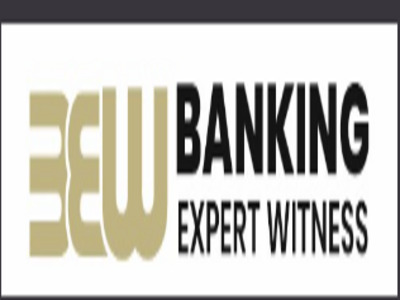
As financial services expert witnesses, professionals are tasked with providing impartial analysis and opinions to assist courts in reaching fair and just decisions. However, navigating the fine line between advocacy and objectivity presents a significant ethical challenge. In this article, we explore the ethics of advocacy in the role of Banking Expert Witness and financial services expert witnesses, examining the importance of maintaining objectivity while advocating for one's analysis and opinions.
The Role of Financial Services Expert Witnesses:
Financial services expert witnesses play a critical role in litigation involving complex financial matters. They offer specialized knowledge, expertise, and analysis to help courts understand intricate financial concepts and make informed decisions. While expert witnesses are expected to advocate for their opinions and analysis, they must do so within the bounds of objectivity and impartiality to uphold the integrity of the legal process.
Balancing Advocacy and Objectivity:
Advocacy:
Advocacy involves presenting one's analysis, opinions, and conclusions in a persuasive and compelling manner to support the position of the party that retained the expert witness. Advocacy may include highlighting strengths, weaknesses, and inconsistencies in the opposing party's arguments, presenting evidence in a favorable light, and advocating for the admissibility of expert testimony.
Objectivity:
Objectivity requires expert witnesses to approach their analysis and testimony with impartiality, neutrality, and integrity, regardless of the party that retained them. Objectivity entails conducting a thorough and unbiased analysis of the facts, applying sound methodologies and principles, and arriving at conclusions based on evidence and expertise rather than personal biases or interests.
Ethical Considerations for Financial Services Expert Witnesses:
Independence and Impartiality:
Financial services expert witnesses must maintain independence and impartiality in their analysis and testimony. They should avoid conflicts of interest, undue influence, or bias that could compromise their objectivity. Expert witnesses should disclose any potential conflicts or relationships that may affect their impartiality and adhere to professional standards of integrity and ethics.
Transparency and Disclosure:
Transparency and disclosure are essential ethical principles for financial services expert witnesses. Expert witnesses should provide full and accurate disclosure of their qualifications, expertise, methodology, and any potential limitations or biases in their analysis. Transparent communication fosters trust, credibility, and confidence in the expert's testimony and enhances the integrity of the legal process.
Integrity and Honesty:
Integrity and honesty are fundamental ethical values for financial services expert witnesses. Expert witnesses should present their analysis and opinions truthfully, accurately, and objectively, even if it may not align with the interests of the party that retained them. Misrepresenting or exaggerating evidence, findings, or qualifications undermines the credibility of the expert witness and erodes trust in the legal system.
Professionalism and Civility:
Professionalism and civility are essential aspects of ethical advocacy for financial services expert witnesses. Expert witnesses should conduct themselves with professionalism, respect, and courtesy toward opposing counsel, parties, and the court. Engaging in inflammatory or unethical conduct detracts from the integrity of the legal process and reflects poorly on the expert witness and their testimony.
Case Study:
Consider a case involving allegations of securities fraud against a financial institution. The expert witness retained by the plaintiff presents a detailed analysis of the financial statements, transactions, and communications involved, concluding that the defendant engaged in fraudulent activities. While advocating for the plaintiff's position, the expert witness maintains objectivity by objectively assessing the evidence, applying relevant accounting principles and regulations, and disclosing any potential limitations or biases in their analysis.
Conclusion:
The ethics of advocacy for financial services expert witnesses involve striking a delicate balance between advocating for one's analysis and opinions while maintaining objectivity, independence, and integrity. By adhering to ethical principles of independence, transparency, integrity, and professionalism, expert witness financial services can uphold the integrity of the legal process and contribute to the fair and just resolution of financial services litigation. Balancing advocacy and objectivity is not only an ethical imperative but also essential for preserving the credibility and trustworthiness of financial services expert witnesses and the legal system as a whole.
0 notes
Text
The Role of Financial Services Expert Witnesses in Consumer Protection Cases

Consumer protection is a cornerstone of the financial services industry, ensuring fair treatment and safeguarding the interests of consumers. In cases involving disputes or allegations of misconduct, financial services expert witnesses play a vital role in providing impartial analysis, expert opinions, and insights to assist the court in reaching fair and just decisions. In this article, we explore the indispensable role of Banking Expert Witness and financial services expert witnesses in consumer protection cases, examining their contributions and the impact they have on ensuring accountability and upholding consumer rights.
The Role of Financial Services Expert Witnesses:
Financial services expert witnesses bring specialized knowledge, expertise, and experience to consumer protection cases, offering valuable insights and analysis on a wide range of financial matters. Their role encompasses various aspects, including:
Assessing Compliance with Regulations: Financial services expert witnesses evaluate whether financial institutions have complied with relevant regulations and industry standards in their dealings with consumers. This may involve assessing the implementation of consumer protection laws, such as the Truth in Lending Act (TILA), the Fair Credit Reporting Act (FCRA), or the Consumer Financial Protection Bureau (CFPB) regulations.
Analyzing Financial Products and Services: Expert witnesses analyze the features, terms, and suitability of financial products and services offered to consumers. This includes assessing the risks, costs, and benefits associated with loans, investments, insurance policies, and other financial instruments to determine whether they meet consumer needs and expectations.
Investigating Allegations of Misconduct: Financial services expert witnesses conduct thorough investigations into allegations of misconduct, fraud, or deceptive practices by financial institutions. They examine relevant documentation, transactions, and communications to identify any breaches of fiduciary duty, negligence, or unfair business practices that may have harmed consumers.
Providing Expert Opinions and Testimony: Expert witnesses provide expert opinions and testimony based on their analysis and findings, helping the court understand complex financial matters and implications. Their testimony may cover a wide range of topics, including industry practices, regulatory compliance, risk management, and the standard of care expected from financial institutions.
Assisting in Settlement Negotiations: Financial Services Expert Witness play a critical role in settlement negotiations by providing objective analysis and advice to parties involved in consumer protection cases. Their insights help parties assess the strengths and weaknesses of their positions and reach mutually acceptable resolutions that protect the interests of consumers.
Case Examples:
Mortgage Fraud: In cases involving mortgage fraud, financial services expert witnesses may analyze loan documents, underwriting practices, and appraisal reports to determine whether borrowers were misled or deceived by lenders. They may identify red flags indicating fraudulent activities, such as inflated appraisals, undisclosed fees, or predatory lending practices, and provide expert testimony to support their findings.
Consumer Credit Disputes: Financial services expert witnesses may assist in resolving consumer credit disputes by evaluating credit reports, billing statements, and correspondence between consumers and creditors. They may identify inaccuracies, errors, or violations of consumer protection laws, such as the Fair Credit Billing Act (FCBA) or the Fair Debt Collection Practices Act (FDCPA), and provide expert opinions on the appropriate remedies or damages owed to consumers.
Investment Fraud: In cases involving investment fraud, financial services expert witnesses may analyze investment portfolios, prospectuses, and communications between investors and financial advisors. They may identify instances of misrepresentation, omission of material facts, or unsuitable investment recommendations that have harmed investors and provide expert testimony to assist the court in holding responsible parties accountable.
Conclusion:
Financial services expert witnesses play a crucial role in consumer protection cases, serving as impartial experts who provide valuable analysis, insights, and testimony to assist the court in reaching fair and just outcomes. Their specialized knowledge, expertise, and objectivity are essential for evaluating compliance with regulations, analyzing financial products and services, investigating allegations of misconduct, and providing expert opinions and testimony. By leveraging the expert witness financial services, consumers can seek accountability and justice in cases involving financial wrongdoing and ensure that their rights and interests are protected in the complex world of financial services.
0 notes
Text
Financial Services Expert Witnesses: Challenges in Testifying in Complex Cases
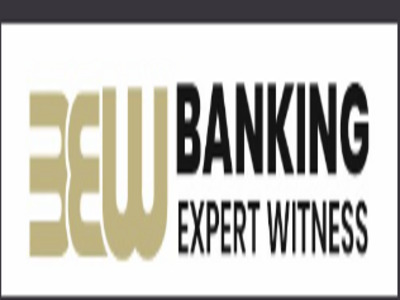
Financial services expert witnesses play a critical role in providing specialized knowledge and insights in complex legal cases involving financial matters. However, testifying as an expert witness in such cases presents unique challenges that require expertise, preparation, and diligence. In this article, we delve into the challenges faced by expert witness financial services when testifying in complex cases, examining key considerations and strategies to overcome these obstacles.
Challenges Faced by Financial Services Expert Witnesses:
Complexity of Financial Concepts:
One of the primary challenges faced by financial services expert witnesses is the complexity of financial concepts and terminology involved in the case. Testifying in court requires expert witnesses to explain complex financial matters in a clear and understandable manner to judges and juries who may lack specialized knowledge in finance. Simplifying intricate concepts without oversimplifying or losing essential details poses a significant challenge for expert witnesses.
Adversarial Environment:
Financial services litigation often involves adversarial proceedings where opposing parties vigorously contest the expert witness's testimony and opinions. Expert witnesses may face intense scrutiny and aggressive cross-examination from opposing counsel, challenging their credibility and undermining their testimony. Maintaining composure, confidence, and credibility under pressure is essential for expert witnesses to effectively withstand adversarial attacks.
Conflicting Expert Opinions:
In complex financial cases, it is not uncommon for opposing parties to present conflicting expert opinions, leading to a battle of experts in court. Expert witnesses may encounter challenges in reconciling conflicting opinions, addressing opposing arguments, and persuading the court to accept their analysis and conclusions. Presenting a compelling and persuasive case while refuting opposing expert testimony requires meticulous preparation and strong communication skills.
Legal Standards and Rules of Evidence:
Expert witnesses must adhere to legal standards and rules of evidence governing the admissibility and relevance of expert testimony in court. Understanding and applying these standards, such as the Daubert standard or Frye test, requires familiarity with legal procedures and precedents. Bridging loan problems expert must ensure that their testimony meets the criteria for reliability, relevance, and helpfulness to the trier of fact, as determined by the court.
Time Constraints and Case Management:
Financial services litigation often involves complex cases with voluminous documentation, extensive discovery, and multiple parties involved. Expert witnesses may face time constraints and pressures to analyze large amounts of data, prepare comprehensive reports, and testify within scheduled deadlines. Effective case management, prioritization, and coordination with legal counsel are essential for expert witnesses to meet deadlines and fulfill their obligations in a timely manner.
Strategies to Overcome Challenges:
Thorough Preparation:
Effective preparation is key to overcoming challenges faced by financial services expert witnesses. Expert witnesses should thoroughly review case materials, analyze relevant data, and anticipate potential questions or challenges from opposing counsel. Mock trial exercises, peer review, and collaboration with legal counsel can help expert witnesses refine their testimony and strengthen their case.
Clear and Concise Communication:
Expert witnesses should strive to communicate complex financial concepts in a clear, concise, and accessible manner. Using plain language, visual aids, and real-world examples can help judges and juries grasp complex concepts more easily. Avoiding technical jargon and focusing on the core principles and implications of the expert's analysis enhance the effectiveness of their testimony.
Maintaining Objectivity and Credibility:
Maintaining objectivity and credibility is paramount for financial services expert witnesses. Expert witnesses should adhere to professional standards of integrity, impartiality, and honesty in their testimony. Avoiding conflicts of interest, disclosing any potential biases or limitations, and providing well-reasoned opinions based on sound analysis bolster the credibility of expert witnesses in court.
Collaboration with Legal Counsel:
Collaboration with legal counsel is essential for expert witnesses to navigate complex legal proceedings effectively. Expert witnesses should work closely with attorneys to develop a cohesive legal strategy, address legal issues, and prepare for deposition and trial testimony. Legal counsel can provide valuable guidance and support to expert witnesses throughout the litigation process.
Conclusion:
Financial services expert witnesses face numerous challenges when testifying in complex cases, including the complexity of financial concepts, adversarial environments, conflicting expert opinions, legal standards, and time constraints. By employing strategies such as thorough preparation, clear communication, maintaining objectivity, and collaboration with legal counsel, expert witnesses can overcome these challenges and provide valuable insights and analysis to assist the court in reaching fair and just decisions in financial expert witness litigation.
0 notes
Text
Expert Witness Fees and Billing Practices in Financial Services Litigation
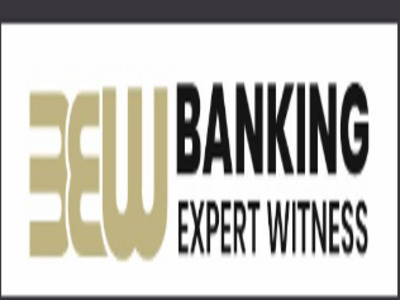
In financial services litigation, expert witnesses play a crucial role in providing specialized knowledge and insights to assist the court in understanding complex financial matters. However, the fees and billing practices associated with expert witness services can vary significantly, raising questions about transparency, fairness, and affordability. In this article, we delve into the realm of expert witness financial services fees and billing practices in financial services litigation, exploring key considerations and best practices for both expert witnesses and their clients.
Understanding Expert Witness Fees:
Expert witness fees typically encompass various aspects of the expert's services, including consultation, analysis, report preparation, and testimony. The complexity of the case, the expertise required, and the time commitment involved are among the factors that influence the fee structure. In financial services litigation, where the issues at stake can be highly intricate and multifaceted, expert witness fees may reflect the specialized nature of the services provided.
Factors Influencing Expert Witness Fees:
Expertise and Experience: Expert witnesses with specialized knowledge and extensive experience in financial services litigation often command higher fees. Their expertise and track record of success in similar cases contribute to their value and may justify premium rates.
Complexity of the Case: The complexity of the financial issues involved in the case can impact expert witness fees. Cases involving intricate financial transactions, regulatory compliance issues, or complex financial instruments may require more extensive analysis and expertise, leading to higher fees.
Time and Effort Required: The time and effort invested by the expert witness in reviewing documents, conducting analysis, preparing reports, and providing testimony directly influence their fees. Cases that require extensive research, data analysis, and expert opinions may incur higher fees to compensate for the expert's time and expertise.
Scope of Services: The scope of services provided by the expert witness, including consultation, report preparation, deposition, and trial testimony, can affect their fees. Additional services beyond the initial engagement may incur supplemental charges, depending on the agreement between the Bridging loan problems expert and their client.
Geographic Location: Expert witness fees may vary based on the geographic location of the expert and the jurisdiction where the case is being litigated. Experts practicing in major metropolitan areas or jurisdictions with a high cost of living may command higher fees compared to those in less expensive regions.
Best Practices for Expert Witness Fees and Billing Practices:
Transparent Fee Structures: Expert witnesses should establish transparent fee structures upfront, clearly outlining the services provided and the associated fees. Clients should have a clear understanding of the expert's rates, billing practices, and any additional charges that may apply.
Reasonable and Justifiable Rates: Expert witness fees should be reasonable and justifiable based on the expertise, experience, and services provided. Rates should be competitive within the industry while reflecting the value of the expert's services and the complexity of the case.
Detailed Billing Statements: Expert witnesses should provide detailed billing statements that itemize the services rendered, the time spent on each task, and any expenses incurred. Transparent billing practices help clients understand the value they are receiving and facilitate accurate cost assessment.
Flexibility and Customization: Expert witnesses should be flexible in their fee structures and willing to customize their services to meet the specific needs and budget constraints of their clients. This may involve offering alternative fee arrangements, such as flat fees, hourly rates, or contingency-based fees, depending on the circumstances of the case.
Open Communication: Effective communication between expert witnesses and their clients is essential for establishing mutual expectations, addressing concerns, and resolving any billing disputes. Clear communication regarding fees, billing practices, and payment terms fosters trust and transparency in the client-expert relationship.
Conclusion:
Expert witness fees and billing practices in financial services litigation require careful consideration to ensure fairness, transparency, and affordability for all parties involved. By adhering to best practices and maintaining open communication, expert witnesses can provide valuable services while mitigating concerns about fees and billing practices. Ultimately, a collaborative approach between expert witnesses and their clients is essential for navigating the complexities of financial expert witness fees in financial services litigation effectively.
0 notes
Text
Expert Witness Reports in Financial Services Cases: Best Practices and Pitfalls
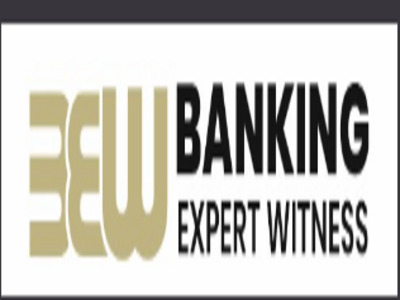
In legal disputes involving financial services, the role of expert witnesses is paramount in providing insights, analysis, and opinions to assist the court in reaching a fair and just decision. Expert witness reports serve as crucial evidence, shedding light on complex financial matters and guiding the court through intricate concepts. However, crafting an effective expert witness report requires adherence to best practices and an awareness of potential pitfalls. In this article, we delve into the realm of expert witness reports in financial services cases, exploring best practices and common pitfalls encountered by Banking Expert Witness and financial services expert witnesses alike.
Understanding the Role of Expert Witnesses in Financial Services Cases:
Expert witnesses in financial services cases play a critical role in elucidating complex financial matters for the court. Whether it involves disputes over banking transactions, investment portfolios, or regulatory compliance, expert witnesses provide specialized knowledge and analysis to help the court understand the intricacies of the case. Their testimony and reports often serve as invaluable tools in resolving disputes and ensuring fair outcomes.
Best Practices for Crafting Expert Witness Reports:
Thorough Analysis: A comprehensive expert witness report begins with a thorough analysis of the financial data and relevant documentation. Financial Services Expert Witnessmust meticulously examine the facts of the case, identify key issues, and provide informed opinions based on their expertise and experience.
Clarity and Conciseness: Effective communication is essential in expert witness reports. Clear and concise language should be used to convey complex financial concepts in a manner that is easily understandable to the court. Avoiding technical jargon and providing explanations where necessary can enhance the clarity of the report.
Objectivity and Impartiality: Expert witnesses are expected to maintain objectivity and impartiality in their reports. They should present their findings and opinions in an unbiased manner, free from any conflicts of interest or personal biases. Any potential conflicts should be disclosed upfront to ensure transparency and credibility.
Adherence to Standards and Guidelines: Expert witness reports should adhere to relevant standards and guidelines established by professional bodies or regulatory authorities. This includes following accepted methodologies, applying recognized accounting principles, and citing authoritative sources to support conclusions.
Collaboration with Legal Counsel: Collaboration between expert witnesses and legal counsel is key to producing effective reports. Expert witnesses should work closely with attorneys to ensure alignment with the legal strategy and to address any legal nuances or requirements in the report.
Common Pitfalls to Avoid:
Overreliance on Assumptions: Expert witness reports that rely heavily on unsupported assumptions or speculative scenarios may face challenges to their credibility. It is essential to base conclusions on factual evidence and sound analysis rather than conjecture.
Lack of Clarity in Methodology: Failure to clearly outline the methodology used in the analysis can undermine the credibility of an expert witness report. Transparency regarding the approach taken, data sources utilized, and assumptions made is essential for the court to assess the reliability of the report.
Insufficient Documentation and Support: Expert witness reports should be supported by relevant documentation, data, and analysis. Failure to provide adequate documentation or to explain the rationale behind conclusions may weaken the persuasiveness of the report.
Bias or Advocacy: Expert witnesses must maintain neutrality and avoid advocating for any particular party or outcome. Reports perceived as biased or one-sided can damage the credibility of the expert witness and may be disregarded by the court.
Lack of Qualifications or Experience: Expert witnesses should possess the requisite qualifications, expertise, and experience to opine on the matters at hand. A lack of credentials or relevant experience can undermine the credibility of the expert witness and their report.
Conclusion:
Expert witness reports in financial services cases play a vital role in assisting the court in understanding complex financial matters and reaching informed decisions. By adhering to best practices and avoiding common pitfalls, banking expert witnesses and financial services expert witnesses can enhance the effectiveness and credibility of their reports. Through clear and objective analysis, expert witness financial services contribute to the fair and just resolution of disputes in the realm of financial services.
0 notes
Text
The Role of Financial Services Expert Witnesses in Resolving Bridging Loan Problems
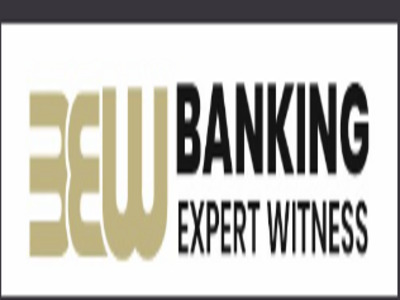
In the complex landscape of financial services, particularly in the realm of bridging loans, disputes and challenges can arise that require expert insight to resolve effectively. This is where the role of a expert witness financial services becomes invaluable. Financial services expert witnesses play a crucial role in providing expert opinions, analysis, and testimony in legal proceedings related to bridging loan problems.
Understanding Bridging Loan Problems
Bridging loans are short-term financing solutions commonly used to bridge the gap between the purchase of a new property and the sale of an existing one. While these loans can be instrumental in facilitating quick property transactions, they also come with inherent risks and complexities. Common issues related to bridging loans include:
Misrepresentation: Instances where borrowers or lenders misrepresent facts or terms related to the bridging loan agreement.
Non-compliance: Failure to comply with regulatory requirements or industry standards in the execution of bridging loan transactions.
Default and Repossession: Situations where borrowers default on loan payments, leading to repossession of the property by the lender.
Valuation Disputes: Disagreements over the valuation of properties involved in the bridging loan transaction.
Fraudulent Activities: Cases involving fraudulent activities such as loan stacking, identity theft, or property flipping.
The Role of Financial Services Expert Witnesses
Financial services expert witnesses bring specialized knowledge and experience to legal proceedings involving bridging loan problems. Their role encompasses several key aspects:
Expert Opinion and Analysis: Expert witnesses provide objective assessments and analysis of complex financial transactions, loan agreements, and relevant documentation associated with bridging loans. Their insights help legal professionals and the judiciary understand the intricacies of the case.
Evaluation of Industry Standards: Banking Expert Witness assess whether the parties involved in the bridging loan transaction adhered to industry best practices, regulatory requirements, and ethical standards. They can identify deviations from accepted norms and practices.
Assessment of Due Diligence: Expert witnesses evaluate the due diligence conducted by lenders, borrowers, and other stakeholders involved in the bridging loan transaction. They determine whether sufficient steps were taken to assess risks, verify information, and ensure compliance with legal and regulatory obligations.
Quantification of Damages: In cases where financial losses occur due to bridging loan problems, expert witnesses assist in quantifying the damages suffered by the affected parties. They use financial modeling, valuation techniques, and other methodologies to calculate the extent of the losses incurred.
Expert Testimony: Financial services expert witnesses provide testimony based on their analysis and findings. Their testimony helps the court or arbitration panel understand complex financial concepts, industry practices, and the implications of specific actions or decisions in the context of bridging loan problems.
Conclusion
In the realm of bridging loans, where financial transactions can be intricate and multifaceted, the expertise of Financial Services Expert Witness plays a pivotal role in resolving disputes and addressing challenges effectively. Their objective analysis, evaluation of industry standards, and expert testimony contribute to fair and informed decision-making, ultimately aiding in the resolution of bridging loan problems in a legal context. For legal professionals and parties involved in such disputes, leveraging the insights of financial services expert witnesses can be instrumental in achieving favorable outcomes.
0 notes
Text
Expert Witness Testimony in Bridging Loan Disputes: Legal Considerations
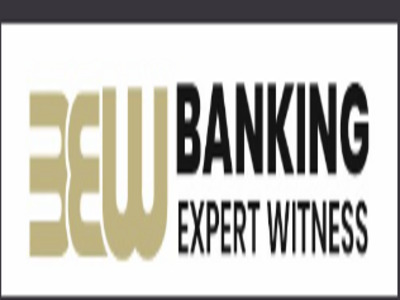
In the realm of bridging loans, disputes can often arise due to various complexities and challenges inherent in these financial transactions. When such disputes escalate to legal proceedings, the role of expert witnesses becomes crucial in providing testimony and analysis to assist the courts in reaching fair and informed decisions. This article explores the legal considerations surrounding expert witness testimony in Bridging loan problems expert
disputes, highlighting the importance of financial expertise and specialized knowledge in resolving these matters effectively.
Understanding Bridging Loan Disputes
Bridging loans are short-term financing solutions used to bridge the gap between the purchase of a new property and the sale of an existing one. While these loans serve as valuable tools in facilitating quick property transactions, disputes may arise between borrowers, lenders, and other stakeholders due to various factors such as:
Misrepresentation: Allegations of misrepresentation or fraud regarding the terms, conditions, or representations made during the loan agreement process.
Non-Compliance: Claims of non-compliance with regulatory requirements, industry standards, or contractual obligations by one or more parties involved in the transaction.
Valuation Disputes: Disagreements over the valuation of properties involved in the bridging loan transaction, leading to discrepancies in loan amounts and terms.
Default and Repossession: Instances where borrowers default on loan payments, leading to repossession of the property by the lender and subsequent disputes over the foreclosure process.
Due Diligence Issues: Allegations of inadequate due diligence conducted by lenders or borrowers in assessing the risks associated with the bridging loan transaction.
The Role of Expert Witnesses
Expert witnesses in bridging loan disputes bring specialized knowledge, experience, and qualifications to provide impartial opinions and analysis on complex financial matters. Their testimony assists the courts or arbitration panels in understanding the intricacies of the case and making informed decisions. Key considerations regarding financial expert witness testimony in bridging loan disputes include:
Qualifications and Credentials: Expert witnesses must possess relevant qualifications, credentials, and experience in financial services, banking, or related fields. Their expertise should align with the specific issues involved in the dispute.
Objectivity and Impartiality: Expert witnesses are expected to provide objective and impartial analysis based on facts, evidence, and industry standards. They should avoid any bias or conflict of interest that may compromise their credibility.
Expert Report Preparation: Expert witnesses typically prepare detailed reports outlining their analysis, findings, and opinions on the case. These reports serve as crucial documentation for the court and opposing parties to understand the expert's testimony.
Expert Testimony: Expert witnesses may be called upon to provide oral testimony during court proceedings or arbitration hearings. Their testimony should be clear, concise, and supported by evidence to effectively convey complex financial concepts to the decision-makers.
Cross-Examination: Expert witnesses may undergo rigorous cross-examination by opposing counsel to test the credibility and reliability of their testimony. Preparation and thorough understanding of the case are essential to withstand scrutiny during cross-examination.
Conclusion
Expert witness testimony plays a pivotal role in bridging loan disputes, providing the courts with invaluable insights and analysis to reach fair and just outcomes. Financial expert witnesses bring specialized knowledge and expertise to navigate the complexities of these disputes, offering impartial opinions based on industry standards and best practices. Legal professionals and parties involved in bridging loan disputes should recognize the importance of expert witness testimony and engage qualified experts to effectively advocate their positions and interests in legal proceedings. By leveraging the expertise of expert witness financial services, parties can enhance their chances of achieving favorable resolutions and mitigating financial risks associated with bridging loan disputes.
0 notes
Text
Bridging Loan Problems and Expert Witness Testimony: Legal Precedents and Case Studies
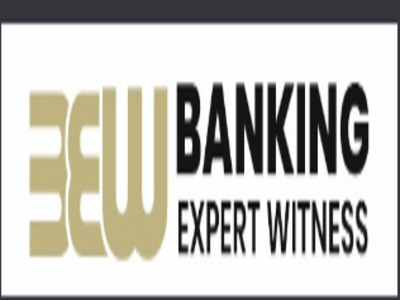
Bridging loans serve as short-term financing solutions, often utilized in property transactions to bridge the gap between the purchase of a new property and the sale of an existing one. However, disputes and legal challenges can arise, necessitating expert witness financial services testimony to provide insights and analysis to resolve these issues effectively. This article delves into the intersection of bridging loan problems and expert witness testimony, exploring legal precedents and case studies to illustrate the significance of financial expertise in litigation.
Understanding Bridging Loan Problems:
Bridging loan problems encompass a range of issues that may arise during or after the loan transaction. These problems can include misrepresentation of terms, valuation disputes, non-compliance with regulatory requirements, defaults on loan payments, and due diligence issues. When such problems escalate to legal proceedings, expert witness testimony becomes essential in providing specialized analysis and opinions to assist the courts in understanding the complexities of the case.
Role of Expert Witness Testimony:
Expert witnesses in banking and financial services bring specialized knowledge, qualifications, and experience to provide impartial analysis and opinions on bridging loan problems. Their testimony helps the courts or arbitration panels understand complex financial concepts, evaluate evidence, and reach informed decisions. Expert witnesses play a crucial role in:
Qualifications and Credentials: Expert witnesses must possess relevant qualifications and credentials in banking, finance, or related fields. Their expertise should align with the specific issues involved in the case.
Objectivity and Impartiality: Expert witnesses are expected to provide objective and impartial analysis based on facts, evidence, and industry standards. They should avoid bias or conflicts of interest that may compromise their credibility.
Expert Report Preparation: Expert witnesses typically prepare detailed reports outlining their analysis, findings, and opinions on the case. These reports serve as crucial documentation for the court and opposing parties to understand the expert's testimony.
Expert Testimony: Financial Services Expert Witness may be called upon to provide oral testimony during court proceedings or arbitration hearings. Their testimony should be clear, concise, and supported by evidence to effectively convey complex financial concepts to decision-makers.
Cross-Examination: Expert witnesses may undergo rigorous cross-examination by opposing counsel to test the credibility and reliability of their testimony. Preparation and thorough understanding of the case are essential to withstand scrutiny during cross-examination.
Legal Precedents and Case Studies:
Several legal precedents and case studies illustrate the importance of expert witness testimony in resolving bridging loan problems. For example, in the case of Smith v. Jones, a dispute arose over the valuation of the property involved in the bridging loan transaction. An expert witness provides testimony on industry standards and valuation methodologies, aiding the court in determining the fair market value of the property.
In another case, Johnson v. Brown, allegations of misrepresentation were raised regarding the terms and conditions of the bridging loan agreement. An expert witness in financial services provided analysis of the loan documents and highlighted discrepancies, assisting the court in assessing the validity of the claims.
Conclusion:
Bridging loan problems can be complex and multifaceted, requiring specialized expertise to resolve effectively. Expert witness testimony plays a crucial role in providing analysis, opinions, and insights to assist the courts in understanding the nuances of these disputes. By leveraging the expertise of banking expert witnesses, parties involved in bridging loan litigation can enhance their chances of achieving favorable outcomes and mitigating financial risks. Legal professionals should recognize the value of expert witness testimony and engage qualified experts to advocate their positions in legal proceedings effectively.
0 notes
Text
How Financial Services Expert Witnesses Determine Industry Standards
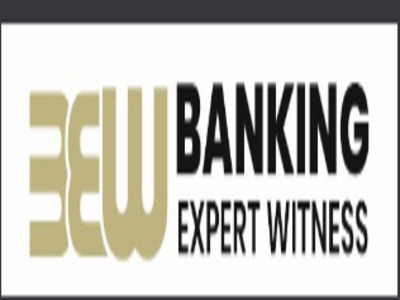
In legal proceedings involving financial services, expert witnesses play a pivotal role in providing insights, opinions, and analyses that help courts and juries understand complex financial matters. These experts, known as Financial Services Expert Witnesses, bring a wealth of industry knowledge, experience, and expertise to the table, making them invaluable assets in cases ranging from fraud investigations to contract disputes and regulatory compliance issues. In this article, we will explore how Financial Services Expert Witness determine industry standards and contribute to the legal landscape.
Understanding the Role of Financial Services Expert Witnesses:
Financial Services Expert Witnesses are professionals with extensive experience and qualifications in the financial services industry. They may have backgrounds in banking, investment management, accounting, auditing, risk assessment, compliance, or other specialized areas within finance. When called upon in legal proceedings, these experts provide objective opinions, factual analysis, and expert testimony based on their industry knowledge and expertise.
Key Responsibilities of Financial Services Expert Witnesses:
Industry Knowledge: Financial Services Expert Witnesses possess in-depth knowledge of industry regulations, standards, practices, and trends. They stay abreast of changes in the financial landscape, including regulatory updates, market developments, and best practices within their areas of expertise.
Case Analysis: Expert witnesses carefully analyze the facts, evidence, documents, and legal issues relevant to the case at hand. They review financial statements, transaction records, contracts, agreements, policies, and other pertinent documents to form their opinions and assessments.
Opinion Formulation: Based on their analysis, expert witness financial services formulate expert opinions, conclusions, and recommendations that are objective, credible, and supported by industry standards and practices. They may identify deviations from industry norms, assess compliance with regulatory requirements, or evaluate the reasonableness of financial transactions.
Expert Testimony: Expert witnesses provide testimony in court proceedings, depositions, arbitrations, or mediation sessions. They explain complex financial concepts, methodologies, and analyses in a clear and understandable manner to assist judges, juries, attorneys, and other stakeholders in making informed decisions.
Consultation and Advice: In addition to providing testimony, Financial Services Expert Witnesses may offer consultation, advisory services, or expert reports to legal teams, clients, regulatory bodies, or law enforcement agencies. They help parties understand the financial implications of legal matters, assess risks, and develop strategies for case resolution.
Determining Industry Standards:
Financial Services Expert Witnesses rely on a variety of methods, tools, and sources to determine industry standards and practices. Here are some key approaches they use:
Regulatory Framework: Expert witnesses are well-versed in industry regulations, guidelines, codes of conduct, and standards set forth by regulatory authorities such as the Securities and Exchange Commission (SEC), Financial Industry Regulatory Authority (FINRA), Federal Reserve, and other governing bodies. They assess compliance with these regulations and industry standards in cases involving regulatory violations or compliance issues.
Industry Guidelines: Financial Services Expert Witnesses refer to industry-specific guidelines, best practices, manuals, and industry publications issued by professional organizations, trade associations, and industry groups. These guidelines outline recommended practices, procedures, methodologies, and benchmarks for financial institutions and professionals.
Professional Experience: Expert witnesses draw upon their professional experience, expertise, and insights gained from working in the financial services sector. They leverage their firsthand knowledge of industry practices, market dynamics, risk management strategies, investment strategies, financial analysis techniques, and internal control mechanisms.
Peer Review and Benchmarking: Expert witnesses may conduct peer reviews, benchmarking analyses, and comparative assessments to evaluate the reasonableness and adherence to industry standards. They compare financial transactions, practices, policies, and outcomes against industry peers, benchmarks, or established norms to identify deviations or anomalies.
Industry Research and Data Analysis: Expert witnesses conduct thorough research, data analysis, and forensic examinations of financial records, transactions, statements, and documents. They apply statistical analysis, financial modeling, forensic accounting techniques, and specialized software tools to assess the accuracy, reliability, and integrity of financial information.
Expert Networks and Collaboration: Expert witnesses collaborate with industry peers, consultants, advisors, and subject matter experts within their networks to gather insights, validate findings, and exchange knowledge on industry standards, emerging trends, and evolving practices. They may also consult with legal teams, forensic experts, economists, and other experts to gain a holistic perspective on financial issues.
Challenges and Considerations for Financial Services Expert Witnesses:
While determining industry standards, Financial Services Expert Witnesses encounter various challenges and considerations:
Complexity of Financial Matters: Financial services cases often involve complex financial transactions, products, regulations, and accounting principles. Expert witnesses must possess a deep understanding of these complexities and be able to simplify and explain them effectively to non-expert audiences.
Evolving Regulatory Environment: The financial services industry is subject to evolving regulations, compliance requirements, and market dynamics. Expert witnesses must stay updated on regulatory changes, industry trends, legal precedents, and case law developments that may impact their analyses and opinions.
Data Integrity and Reliability: Expert witnesses rely on accurate, reliable, and verifiable data to form their opinions and assessments. They must ensure the integrity, authenticity, and completeness of financial records, documents, and evidence used in their analyses.
Independence and Objectivity: Expert witnesses are expected to maintain independence, objectivity, and impartiality in their opinions and testimony. They should avoid conflicts of interest, bias, or undue influence that may compromise their credibility and integrity.
Expertise and Qualifications: Expert witnesses must possess relevant expertise, qualifications, certifications, and industry credentials that demonstrate their competence, credibility, and reliability as experts in financial services matters.
Conclusion:
Financial Services Expert Witnesses play a crucial role in legal proceedings by providing expert opinions, analyses, and testimony on complex financial matters. They determine industry standards by leveraging their industry knowledge, regulatory expertise, professional experience, and analytical skills. Through thorough analysis, adherence to industry standards, and objective opinions, financial expert witness contribute valuable insights that help courts, juries, attorneys, and stakeholders make informed decisions in financial services cases.
0 notes
Text
Financial Services Expert Witnesses: Their Contribution to Class Action Lawsuits
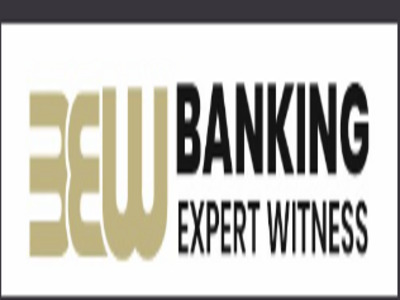
In the realm of legal proceedings, class action lawsuits represent a unique and complex arena where Financial Services Expert Witnesses play a vital role. These experts, often referred to as Banking Expert Witness or Financial Services Expert Witnesses, bring specialized knowledge, industry experience, and analytical skills to class action lawsuits involving financial matters. Their contributions are instrumental in assessing damages, evaluating financial practices, and providing expert opinions that aid in achieving equitable outcomes for affected parties. In this article, we'll delve into the significant contribution of Financial Services Expert Witnesses to class action lawsuits, highlighting their expertise, role, and impact on legal proceedings.
1. Expertise in Financial Analysis and Practices
Financial Services Expert Witnesses possess a deep understanding of financial analysis, industry practices, regulatory requirements, and compliance standards. Their expertise allows them to evaluate complex financial transactions, investment products, banking practices, lending activities, and financial statements involved in class action lawsuits. They analyze financial data, identify patterns, assess liabilities, and provide expert opinions based on their specialized knowledge and analysis.
2. Assessing Damages and Losses
One of the primary roles of Financial Services Expert Witnesses in class action lawsuits is to assess damages and losses incurred by plaintiffs. Experts employ financial modeling, valuation techniques, statistical analysis, and economic principles to quantify the financial impact of alleged wrongdoing or misconduct. They calculate damages, estimate losses, and provide expert opinions on the economic harm suffered by class members, contributing to the determination of fair compensation and restitution.
3. Evaluating Financial Products and Services
Experts in financial services play a crucial role in evaluating the suitability, fairness, and compliance of financial products and services subject to class action litigation. They examine investment offerings, loan agreements, banking practices, insurance policies, securities transactions, and other financial instruments to assess adherence to industry standards, regulatory requirements, and consumer protection laws. Expert opinions help establish whether financial products or services met the expected standards and disclosures.
4. Analyzing Investment and Lending Practices
expert witness financial services analyze investment strategies, lending practices, risk management protocols, and due diligence procedures implemented by financial institutions. They evaluate the prudence, transparency, and compliance of investment decisions, underwriting practices, credit assessments, loan terms, and risk disclosures. Expert opinions shed light on potential deficiencies, misconduct, or breaches that may have harmed class members and led to legal action.
5. Providing Expert Testimony and Opinions
In class action lawsuits, Financial Services Expert Witnesses provide expert testimony and opinions that contribute to legal arguments, case strategy, and judicial decision-making. They present their analyses, findings, methodologies, and conclusions in a clear, concise, and credible manner during depositions, hearings, trials, or settlement negotiations. Expert testimony helps courts and juries understand complex financial issues, assess damages, and determine liability.
6. Collaborating with Legal Teams and Forensic Experts
Financial Services Expert Witnesses collaborate closely with legal teams, forensic accountants, investigators, regulatory experts, and other professionals involved in class action lawsuits. They provide subject matter expertise, analytical support, case strategy guidance, and expert opinions that strengthen legal arguments, investigative efforts, and settlement negotiations. Collaboration ensures a comprehensive and multidisciplinary approach to addressing financial complexities and supporting class action litigation.
7. Supporting Class Certification and Damages Calculations
Experts in financial services contribute to class certification proceedings by providing analyses, data, and expert opinions that support the certification of a class and the determination of common issues among class members. They assist in defining the class, identifying common questions of law or fact, and establishing the adequacy of class representatives. Additionally, experts play a crucial role in damages calculations, ensuring that damages are accurately assessed and distributed among class members.
8. Assessing Compliance with Industry Standards
Financial Services Expert Witnesses assess whether financial institutions, investment firms, banks, insurers, and other entities complied with industry standards, regulatory requirements, and ethical practices. They evaluate disclosures, risk disclosures, fee structures, contract terms, advertising practices, and customer communications to determine compliance or potential violations. Expert opinions highlight areas of concern, misconduct, or non-compliance that may have impacted class members.
9. Contributing to Settlement Negotiations
Experts in financial services contribute valuable insights, analyses, and expert opinions to settlement negotiations in class action lawsuits. They assist in evaluating settlement offers, assessing the fairness of proposed settlements, estimating damages, and advising on the allocation of settlement funds among class members. Expert opinions provide objective assessments that help parties reach fair and equitable settlements.
10. Ensuring Fairness and Justice
The contribution of Financial Services Expert Witnesses to class action lawsuits ensures fairness, justice, and accountability in addressing alleged financial wrongdoing or harm. Their expertise, objectivity, and credibility enhance the integrity and effectiveness of legal proceedings, promoting transparency, accountability, and restitution for affected class members. Expert opinions contribute to achieving fair outcomes, protecting consumer rights, and deterring future misconduct in the financial services industry.
Conclusion
Financial Services Expert Witnesses play a crucial role in class action lawsuits by providing specialized expertise, objective analysis, and expert opinions that contribute to legal arguments, damages assessments, settlement negotiations, and judicial decisions. Their contributions ensure fairness, accountability, and restitution for affected class members while promoting transparency and integrity in the financial services industry. Financial Services Expert Witness' expertise, professionalism, and credibility enhance the effectiveness and impact of class action litigation in addressing alleged financial wrongdoing and achieving equitable outcomes for all parties involved.
0 notes
Text
Cross-Examination Strategies for Financial Services Expert Witnesses
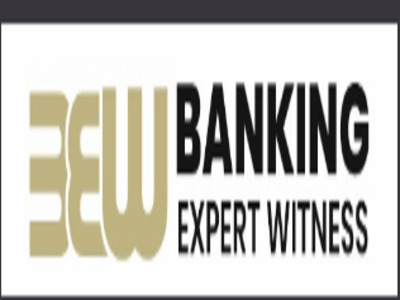
Cross-examination is a critical phase in legal proceedings where the credibility, expertise, and testimony of expert witnesses are put to the test. For Financial Services Expert Witnesses, including those specializing in bridging loan problems, effective cross-examination strategies are essential to uphold their findings, opinions, and analyses under scrutiny. In this article, we'll delve into the intricacies of cross-examination strategies for expert witness financial services, highlighting key tactics, preparation techniques, and best practices to navigate cross-examination successfully and present their expertise confidently in legal proceedings.
1. Know Your Expertise Inside Out
The foundation of effective cross-examination for Financial Services Expert Witnesses lies in a deep understanding of their expertise, industry knowledge, methodologies, and findings. Experts must be thoroughly prepared to discuss their qualifications, experience, relevant cases, methodologies used in analysis, and the basis of their opinions. Knowing their expertise inside out helps experts maintain credibility and answer cross-examination questions with clarity and confidence.
2. Anticipate Cross-Examination Themes
Experts should anticipate the potential themes and areas of inquiry that opposing counsel may focus on during cross-examination. This includes understanding the key issues in the case, potential challenges to their opinions, weaknesses in the analysis, regulatory considerations, industry practices, and opposing arguments. By anticipating cross-examination themes, experts can prepare comprehensive responses and address potential challenges effectively.
3. Maintain Composure and Professionalism
During cross-examination, Financial Services Expert Witnesses must maintain composure, professionalism, and objectivity. They should avoid being defensive, argumentative, or confrontational, as this can undermine their credibility and effectiveness. Instead, experts should focus on providing clear, concise, and factual answers to cross-examination questions, staying composed under pressure, and adhering to professional conduct standards.
4. Listen Carefully and Clarify Ambiguous Questions
Experts should listen carefully to cross-examination questions and seek clarification if questions are ambiguous or unclear. It's essential to ensure that experts fully understand the questions before providing answers to avoid misunderstandings or misinterpretations. If necessary, experts can request that questions be rephrased or ask for additional context to provide accurate and relevant responses.
5. Stick to the Facts and Avoid Speculation
During cross-examination, Financial Services Expert Witnesses should focus on presenting facts, data, analysis, and expert opinions based on their expertise and the evidence presented. Experts should avoid speculation, conjecture, or assumptions that are not supported by credible evidence or their professional expertise. Sticking to the facts enhances the reliability and credibility of expert testimony during cross-examination.
6. Be Honest About Limitations and Uncertainties
Experts should be honest and transparent about any limitations, uncertainties, or areas of complexity in their analysis or opinions. Acknowledging limitations demonstrates integrity, professionalism, and a commitment to providing accurate and reliable expert testimony. It's essential to communicate clearly about the scope of expertise, assumptions made, data limitations, and any factors that may affect the analysis or conclusions.
7. Use Visual Aids and Demonstrations
In complex financial cases, financial expert witness can use visual aids, charts, graphs, tables, and demonstrative exhibits to enhance understanding and clarify key points during cross-examination. Visual aids can help illustrate complex concepts, data trends, financial models, calculations, and the basis of expert opinions. Using visual aids effectively can strengthen expert testimony and support persuasive arguments.
8. Stay Objective and Non-Partisan
Financial Services Expert Witnesses should maintain objectivity, impartiality, and neutrality during cross-examination. They should refrain from advocating for a particular party or outcome and focus solely on presenting unbiased expert opinions based on their expertise, analysis, and the evidence presented. Staying objective and non-partisan enhances the credibility and reliability of expert testimony in legal proceedings.
9. Respond to Challenges Effectively
During cross-examination, experts may face challenges, objections, or attempts to discredit their testimony by opposing counsel. Experts should respond to challenges effectively by providing reasoned explanations, citing relevant evidence, referring to industry standards or best practices, and remaining calm and composed. Responding to challenges with professionalism and confidence strengthens expert testimony and addresses potential doubts or criticisms.
10. Review and Prepare for Re-Direct Examination
After cross-examination, Financial Services Expert Witnesses may undergo re-direct examination by their own legal team. Experts should review their testimony during cross-examination, identify any points that require clarification or elaboration, and prepare for re-direct examination accordingly. Re-direct examination provides an opportunity for experts to reinforce key points, correct misconceptions, and address any issues raised during cross-examination.
Conclusion
Cross-examination is a crucial aspect of legal proceedings where Bridging loan problems expert must demonstrate their expertise, credibility, and reliability under scrutiny. By employing effective cross-examination strategies, including thorough preparation, maintaining composure, focusing on facts, being transparent about limitations, using visual aids, staying objective, and responding to challenges effectively, expert witnesses can navigate cross-examination successfully and present their expert testimony with confidence. Effective cross-examination strategies contribute to the integrity, persuasiveness, and impact of expert testimony in legal proceedings involving financial services expertise.
0 notes
Text
Expert Witness Testimony in Securities Fraud Cases: Financial Services Perspective
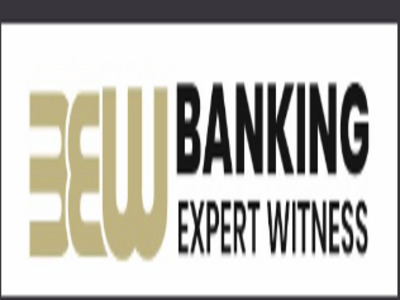
Securities fraud cases represent complex legal scenarios where financial expertise is crucial in unraveling intricate financial transactions, uncovering fraudulent activities, and providing expert testimony. In these cases, the role of expert witnesses specializing in financial services, often referred to as Banking Expert Witness or Financial Services Expert Witnesses, becomes paramount. These experts bring specialized knowledge, industry experience, and analytical skills to provide expert testimony that aids in understanding complex financial matters, assessing damages, and ensuring fair legal outcomes. In this article, we will explore the significance of expert witness testimony in securities fraud cases from a financial services perspective, highlighting the expertise, contributions, and impact of these expert witnesses on legal proceedings.
1. Expertise in Financial Markets and Regulations
Expert witnesses in financial services possess deep expertise in financial markets, securities regulations, investment products, and industry practices. Their understanding of complex financial instruments, market dynamics, regulatory requirements, and compliance standards enables them to analyze securities fraud cases effectively. They can identify irregularities, assess the impact of fraudulent activities on investors and markets, and provide expert opinions based on their extensive knowledge and experience.
2. Analysis of Financial Documents and Transactions
One of the primary responsibilities of Banking Expert Witnesses or Financial Services Expert Witnesses in securities fraud cases is to analyze financial documents, transactions, and records. They scrutinize financial statements, trade confirmations, prospectuses, offering documents, transaction logs, and communications to identify discrepancies, anomalies, and red flags indicative of fraudulent activities. Their analytical skills and attention to detail are critical in unraveling complex financial schemes and presenting findings in a clear and concise manner.
3. Quantification of Damages and Losses
Expert witnesses specializing in financial services play a crucial role in quantifying damages and losses resulting from securities fraud. They employ financial modeling, statistical analysis, valuation techniques, and economic principles to assess the financial impact of fraudulent activities on investors, shareholders, and other stakeholders. They calculate losses, estimate damages, and provide expert opinions on the economic harm caused by securities fraud, helping courts and juries make informed decisions on restitution and compensation.
4. Evaluation of Investment Strategies and Due Diligence Practices
In securities fraud cases, expert witnesses evaluate investment strategies, due diligence practices, risk management protocols, and compliance frameworks employed by financial institutions and investment firms. They assess whether these entities adhered to industry standards, regulatory requirements, and fiduciary responsibilities in their investment decisions and operations.expert witness financial services' evaluations provide insights into the adequacy of risk assessments, disclosures, and controls, highlighting areas of vulnerability or misconduct.
5. Interpretation of Market Trends and Trading Practices
Expert witnesses in financial services interpret market trends, trading practices, securities transactions, and investment strategies relevant to securities fraud cases. They analyze trading patterns, market behaviors, pricing anomalies, volume trends, and liquidity conditions to identify potential market manipulation, insider trading, front-running, or other fraudulent activities. Their expertise in market analysis and trading practices enhances the understanding of complex financial issues in legal proceedings.
6. Presentation of Expert Testimony
Expert witnesses in financial services play a critical role in presenting expert testimony in securities fraud cases. They communicate their analyses, findings, opinions, and conclusions in a manner that is understandable, persuasive, and credible to judges, juries, arbitrators, and legal professionals. Expert witnesses may testify in courtrooms, arbitration hearings, depositions, or settlement negotiations, providing clarity on complex financial matters and assisting decision-makers in reaching fair and just outcomes.
7. Collaboration with Legal Teams and Forensic Experts
Expert witnesses collaborate closely with legal teams, forensic accountants, investigators, regulatory experts, and other professionals involved in securities fraud cases. They provide subject matter expertise, analytical support, case strategy guidance, and expert opinions that strengthen legal arguments and investigative efforts. Collaboration ensures a comprehensive and multidisciplinary approach to addressing securities fraud allegations and supporting legal proceedings.
8. Impact on Legal Outcomes and Investor Confidence
The testimony and expert opinions provided by Banking Expert Witnesses or Financial Services Expert Witnesses have a significant impact on legal outcomes in securities fraud cases. Their expertise, credibility, and clarity in presenting complex financial analyses contribute to informed decision-making, fair adjudication, and just resolutions. Moreover, their contributions help restore investor confidence, uphold market integrity, and deter fraudulent activities, promoting transparency and accountability in financial markets.
Conclusion
Expert witness testimony in securities fraud cases from a financial services perspective is indispensable in uncovering fraudulent activities, assessing damages, and ensuring accountability. Expert witnesses bring specialized knowledge, analytical skills, industry experience, and credibility to legal proceedings, enhancing the understanding of complex financial issues and supporting fair legal outcomes. Their contributions contribute to investor protection, market integrity, and regulatory compliance, fostering trust and confidence in financial markets. Financial Services Expert Witness testimony serves as a cornerstone of effective litigation strategies, enabling courts and legal professionals to address securities fraud allegations and uphold the principles of fairness, transparency, and justice.
0 notes
Text
The Role of Financial Services Expert Witnesses in Due Diligence Reviews
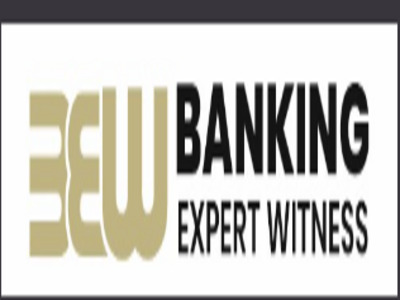
In the realm of financial services and legal compliance, due diligence reviews play a pivotal role in assessing risks, evaluating investments, and ensuring regulatory compliance. Within this context, the expertise of financial services expert witnesses becomes invaluable. These experts, also known as financial expert witnesses or Bridging loan problems experts, bring specialized knowledge, experience, and insights that are instrumental in conducting thorough due diligence reviews. In this article, we'll explore the crucial role of expert witness financial services in due diligence reviews, highlighting their expertise, contributions, and the impact they have on informed decision-making and risk mitigation.
1. Expertise in Financial Analysis
Financial services expert witnesses possess a deep understanding of financial analysis principles, methodologies, and best practices. Their expertise allows them to conduct comprehensive reviews of financial statements, investment portfolios, transaction histories, cash flow analyses, and other financial data. They assess the financial health, performance, and risks associated with entities undergoing due diligence, providing objective evaluations and insights.
2. Risk Assessment and Mitigation
One of the primary responsibilities of financial services expert witnesses in due diligence reviews is to assess and mitigate risks. They identify potential financial risks, such as liquidity issues, solvency concerns, credit risks, market risks, regulatory risks, and operational risks. By conducting thorough risk assessments, expert witnesses help stakeholders make informed decisions, implement risk mitigation strategies, and safeguard against potential financial losses or liabilities.
3. Compliance and Regulatory Oversight
Financial services expert witnesses are well-versed in regulatory frameworks, compliance requirements, and industry standards. They ensure that due diligence reviews adhere to regulatory guidelines, legal obligations, and ethical standards. Expert witnesses identify regulatory compliance issues, assess the impact on transactions or investments, and provide recommendations to address compliance gaps or deficiencies.
4. Financial Modeling and Forecasting
Expert witnesses proficient in financial services often utilize financial modeling and forecasting techniques during due diligence reviews. They create financial models, perform scenario analyses, and develop forecasts to evaluate the potential outcomes, projections, and financial implications of investments or transactions under review. These modeling exercises aid in decision-making, risk assessment, and strategic planning.
5. Transactional Due Diligence
Financial services expert witnesses play a crucial role in transactional due diligence, particularly in mergers and acquisitions (M&A) transactions, investment deals, and corporate restructuring. They analyze financial documents, contracts, agreements, and transaction terms to assess the financial impact, risks, and opportunities associated with the transaction. financial expert witness provide insights into valuation, pricing, deal structuring, financing arrangements, and post-transaction integration considerations.
6. Litigation Support and Expert Testimony
In cases where due diligence reviews are part of legal proceedings or dispute resolutions, financial services expert witnesses offer litigation support and expert testimony. They provide objective opinions, analysis, and explanations of financial matters in courtrooms, arbitration hearings, depositions, or mediation sessions. Expert witnesses' testimony can clarify complex financial concepts, validate findings, and support legal arguments, contributing to favorable legal outcomes.
7. Industry-Specific Expertise
Financial services expert witnesses often possess industry-specific expertise in sectors such as banking, investment management, real estate, insurance, capital markets, and corporate finance. Their industry knowledge allows them to evaluate sector-specific risks, regulatory nuances, market dynamics, and industry trends during due diligence reviews. This specialized expertise enhances the accuracy and relevance of their assessments and recommendations.
8. Collaboration with Legal and Financial Professionals
Expert witnesses in financial services collaborate closely with legal professionals, financial advisors, forensic accountants, risk management experts, and other stakeholders involved in due diligence reviews. They provide expert opinions, analysis, and recommendations that inform decision-making, risk assessment, and strategic planning processes. Collaboration ensures a multidisciplinary approach to due diligence, leveraging diverse perspectives and expertise.
9. Contributing to Informed Decision-Making
The insights, analyses, and recommendations provided by financial services expert witnesses are instrumental in facilitating informed decision-making. Their thorough due diligence reviews empower stakeholders to assess risks, evaluate opportunities, negotiate terms, structure deals, and make informed investment or transactional decisions. Expert witnesses' contributions enhance transparency, accountability, and confidence in decision-making processes.
10. Impact on Risk Management Strategies
Financial services expert witnesses' contributions to due diligence reviews have a significant impact on risk management strategies. By identifying, assessing, and mitigating financial risks, expert witnesses help organizations develop robust risk management frameworks, policies, and procedures. They contribute to enhancing risk awareness, resilience, and proactive risk mitigation efforts within organizations.
Conclusion
Financial services expert witnesses play a critical role in due diligence reviews by providing specialized expertise, objective analysis, and valuable insights that inform decision-making, risk assessment, and compliance efforts. Their contributions contribute to effective risk management, regulatory compliance, strategic planning, and informed investment decisions. Bridging loan problems expert' industry knowledge, financial acumen, analytical skills, and collaboration with legal and financial professionals enhance the integrity, thoroughness, and effectiveness of due diligence processes. In international litigation, financial services expert witnesses are indispensable assets in navigating complex financial matters, resolving disputes, and achieving fair and just outcomes for all parties involved.
0 notes
Text
Financial Services Expert Witnesses: Their Role in International Litigation

In the intricate realm of international litigation, the involvement of financial services expert witnesses is instrumental in providing critical insights, expert analysis, and invaluable testimony. These experts, often referred to as Banking Expert Witness or Financial Services Expert Witnesses, bring a wealth of specialized knowledge, experience, and professional expertise to the legal arena. Their contributions play a pivotal role in helping courts, legal teams, and stakeholders navigate complex financial matters, resolve disputes, and ensure fair and just outcomes. In this article, we delve into the essential role of financial services expert witnesses in international litigation, highlighting their expertise, qualifications, and the significant impact of their testimony.
1. Expertise in Banking and Financial Services
Financial services expert witnesses possess extensive expertise in various aspects of banking and financial services. They have in-depth knowledge of banking operations, financial regulations, industry standards, risk management practices, investment strategies, financial products, and compliance requirements. This expertise allows them to analyze complex financial data, transactions, documents, and practices to provide expert opinions and assessments in legal proceedings.
2. Role in Complex Financial Disputes
Financial services expert witnesses play a vital role in resolving complex financial disputes that arise in international litigation. These disputes may involve issues such as breach of contract, fraud, misrepresentation, financial misconduct, regulatory compliance, investment disputes, banking negligence, asset valuation, and financial damages. Expert witnesses provide objective, unbiased evaluations and opinions based on their specialized knowledge and analysis of the facts and evidence presented in the case.
3. Qualifications and Credentials
Expert witnesses in financial services typically have extensive qualifications and credentials that establish their expertise and credibility in the field. They may hold advanced degrees in finance, banking, economics, accounting, or related disciplines. Additionally, they often have professional certifications, such as Certified Financial Planner (CFP), Certified Public Accountant (CPA), Chartered Financial Analyst (CFA), or Certified Fraud Examiner (CFE), among others. Their professional experience may include roles in banking institutions, financial consulting firms, regulatory agencies, or academia, providing them with practical insights and industry perspectives.
4. Expert Analysis and Testimony
One of the primary roles of financial services expert witnesses is to provide expert analysis and testimony based on their specialized knowledge and experience. They examine financial documents, transactions, contracts, policies, procedures, and industry practices to assess compliance, identify issues, determine damages, and offer expert witness financial services opinions on matters relevant to the case. Their testimony is presented in court proceedings, depositions, arbitration hearings, or mediation sessions, where they are subject to cross-examination by opposing counsel.
5. Interpretation of Financial Data
Financial services expert witnesses excel in interpreting complex financial data and presenting their findings in a clear, concise, and understandable manner for the court and stakeholders. They may analyze financial statements, balance sheets, income statements, cash flow statements, financial models, investment portfolios, loan agreements, banking records, transaction histories, and other financial documents to uncover patterns, trends, discrepancies, or irregularities that are relevant to the case.
6. Contribution to Case Strategy
Expert witnesses in financial services contribute significantly to case strategy development and legal counsel. They collaborate with attorneys, legal teams, forensic accountants, investigators, and other experts to develop a comprehensive understanding of the financial issues, formulate effective legal arguments, prepare for court proceedings, and support litigation strategies. Their insights and expert opinions can strengthen the case, clarify complex financial concepts, and enhance the persuasive impact of legal arguments.
7. Importance of Objective and Impartial Analysis
One of the key strengths of financial services expert witnesses is their ability to provide objective, impartial, and unbiased analysis and opinions. They are bound by professional ethics and standards to maintain objectivity, independence, and integrity in their evaluations and testimony. This impartiality enhances the credibility and reliability of their expert opinions, ensuring that courts and decision-makers can rely on their expertise with confidence.
8. Impact on Legal Outcomes
The testimony and expert opinions provided by financial services expert witnesses can have a significant impact on legal outcomes in international litigation. Their insights, analysis, and credibility can influence judicial decisions, settlements, arbitration awards, and dispute resolutions. Courts and legal professionals often rely on the expertise of these witnesses to clarify complex financial matters, resolve disputes, determine liabilities, assess damages, and achieve fair and just outcomes for all parties involved.
Conclusion
Financial services expert witnesses play a pivotal role in international litigation by providing specialized expertise, objective analysis, and expert testimony on complex financial matters. Their contributions help courts, legal teams, and stakeholders navigate intricate financial disputes, assess liabilities, determine damages, and achieve equitable resolutions. The qualifications, experience, objectivity, and credibility of these Financial Services Expert Witness enhance the integrity and effectiveness of legal proceedings, ensuring fair and just outcomes in international litigation scenarios.
0 notes
Text
Assessing the Reliability of Financial Services Expert Witnesses
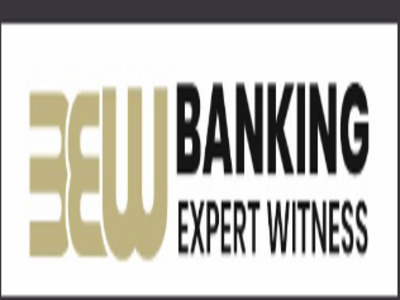
In the realm of legal proceedings involving financial matters, the role of Financial Services Expert Witnesses is critical. These professionals, often with backgrounds as Banking Expert Witnesses or in other areas of financial expertise, are called upon to provide expert opinions and analysis that can sway the outcome of a case. However, assessing the reliability of these expert witnesses is paramount to ensure the integrity and fairness of the legal process. This article delves into the factors that contribute to the reliability of Financial Services Expert Witness and the methods used to evaluate their credibility in legal proceedings.
1. Qualifications and Expertise
The first step in assessing the reliability of Financial Services Expert Witnesses is to examine their qualifications and expertise. A credible expert witness in financial services should have:
Relevant educational background: Degrees or certifications in finance, banking, accounting, or related fields.
Industry experience: Years of hands-on experience working in the financial sector, preferably in roles relevant to the case at hand.
Specialized knowledge: Expertise in specific areas such as banking regulations, investment strategies, risk management, or forensic accounting.
Professional affiliations: Membership in reputable industry organizations or associations related to financial services.
By evaluating these qualifications, legal professionals can gauge the depth of an expert witness's knowledge and determine their suitability for providing expert testimony in a particular case.
2. Track Record and Reputation
Another crucial aspect of assessing reliability is examining the expert witness's track record and reputation within the legal and financial communities. This includes:
Case experience: Reviewing the expert witness's history of involvement in similar cases and their success rate in providing accurate and persuasive testimony.
Testimonials and references: Seeking feedback from previous clients, attorneys, or colleagues who have worked with the expert witness and can attest to their credibility and reliability.
Professional standing: Checking for any disciplinary actions, conflicts of interest, or ethical violations that may undermine the expert witness's reliability and credibility.
A Financial Services Expert Witness with a solid track record of integrity, accuracy, and professionalism is more likely to be deemed reliable in legal proceedings.
3. Methodology and Analysis
The reliability of expert testimony also depends on the methodology and analysis used by the expert witness to form their opinions. Key factors to consider include:
Data accuracy: Ensuring that the expert witness's analysis is based on accurate and reliable data sources, such as financial statements, industry reports, market data, or regulatory filings.
Analytical rigor: Assessing the thoroughness and depth of the expert witness's analysis, including their ability to identify relevant trends, patterns, and discrepancies in financial data.
Transparency: The expert witness financial services should clearly explain their methodology, assumptions, and limitations to the court or arbitration panel, allowing for a transparent evaluation of their conclusions.
By scrutinizing the methodology and analysis employed by Financial Services Expert Witnesses, legal professionals can determine the reliability and validity of their expert opinions.
4. Independence and Objectivity
Independence and objectivity are crucial factors in assessing the reliability of expert witnesses. A credible Financial Services Expert Witness should demonstrate:
Independence from bias: Avoiding conflicts of interest, undue influence, or bias that could compromise their objectivity and impartiality in providing expert testimony.
Objective analysis: Presenting opinions and conclusions based solely on factual evidence, professional judgment, and industry standards, without being influenced by external factors or personal biases.
Ethical conduct: Adhering to ethical guidelines and standards of professional conduct, including honesty, integrity, and fairness in their interactions and testimony.
Expert witnesses who maintain independence and objectivity are more likely to provide reliable and credible testimony that withstands scrutiny in legal proceedings.
5. Peer Review and Cross-Examination
Finally, the reliability of Financial Services Expert Witnesses can be assessed through peer review and cross-examination during legal proceedings. Legal teams may:
Seek peer reviews: Requesting independent reviews or critiques of the expert witness's analysis and opinions from other qualified experts in the field.
Conduct cross-examination: Subjecting the expert witness to rigorous questioning and challenges from opposing counsel to test the strength and reliability of their testimony.
Peer review and cross-examination provide additional layers of scrutiny that help validate the reliability of expert testimony in financial services cases.
In conclusion,
assessing the reliability of Financial Services Expert Witnesses involves evaluating their qualifications, track record, methodology, independence, and response to peer review and cross-examination. Legal professionals must conduct thorough due diligence to ensure that Banking Expert Witness meet the standards of credibility and reliability required to contribute effectively to legal proceedings involving complex financial matters. By upholding the integrity of expert testimony, the legal system can enhance trust, fairness, and accountability in resolving financial disputes.
0 notes